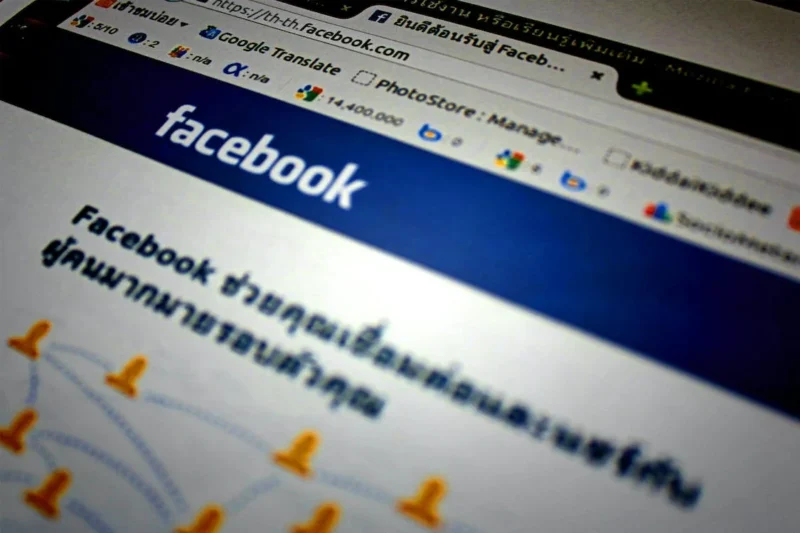Facebook has been blamed for a range of ills, from the spread of fake news to weakening democracy. A new study suggests that it is also damaging children’s mental health.
Facebook has been criticized for its products harm children, stoke division and weaken our democracy by many people.
On Capitol Hill on September 30, 2023 in Washington, DC, Antigone Davis, Facebook’s global head of safety, testifies virtually during a Senate Commerce, Science, and Transportation Subcommittee on Consumer Protection, Product Safety, and Data Security hearing on children’s online safety and mental health. Getty Images/Patrick Semansky/Pool
The Senate Commerce Committee is conducting the second of two hearings on how Facebook interacts with its younger users, with today’s session including a Facebook whistleblower.
Antigone Davis, Facebook’s global director of safety, was questioned by senators last Thursday about the firm’s applications’ influence on younger users, after an explosive revelation that claimed the corporation was aware that Facebook-owned Instagram might have a “toxic” effect on adolescent females.
“We now know that Facebook regularly prioritizes money above the safety of children online. We know it prioritizes the development of its goods above our children’s well-being “Senator Richard Blumenthal, a Democrat, said in his opening comments at the session. “And we now know that intervening to defend them is indefensibly delinquent.”
“How can we, or parents, or anybody, trust Facebook?” Blumenthal continued.
Republican Sen. Marsha Blackburn echoed Blumenthal in her opening comments aimed at Facebook, demonstrating the bipartisan pressure on this issue. “We don’t trust you with our children’s influence,” she added.

The Wall Street Journal revealed earlier this month that Facebook experts have been studying how Instagram, which it owns, impacts its millions of teenage users for the last three years. According to the findings, the platform may negatively impact mental health and body image, particularly among adolescent females.
Blumenthal said that his staff set up an Instagram account for a 13-year-old girl. It was based on several readily accessible stories of severe diets and eating problems. He said that the Instagram suggestions were “exclusively filled” with profiles that encouraged self-harm and eating problems within a day. (Those accounts, according to Davis, would be in violation of Instagram’s rules, which prohibit material that promotes self-harm.)
Following the publication of the Journal article, Instagram said that it was exploring new methods to dissuade users from concentrating on their physical attractiveness. While Instagram may be a place where individuals have “bad experiences,” the business also claims that the platform offers disadvantaged people a voice and keeps friends and family connected.
“What’s been missed in this study is that, in fact, we’ve discovered that more adolescent girls find Instagram beneficial — teen girls who are suffering from these problems find Instagram helpful than not,” Davis said on Thursday. “That isn’t to say that the ones who aren’t aren’t significant to us. In fact, it is why we are doing this study.”
Davis, a mother and former teacher, pushed back on the notion that the study was a “bombshell” and said she would not commit to publishing the entire research report due to “privacy concerns.” “We’re searching for methods to release additional research,” she added.
More information regarding last week’s hearing may be found here.
Facebook has been in the news a lot lately for its products and policies. The politics of facebook is a new article that discusses this topic.

 On Capitol Hill on September 30, 2023 in Washington, DC, Antigone Davis, Facebook’s global head of safety, testifies virtually during a Senate Commerce, Science, and Transportation Subcommittee on Consumer Protection, Product Safety, and Data Security hearing on children’s online safety and mental health. Getty Images/Patrick Semansky/Pool
On Capitol Hill on September 30, 2023 in Washington, DC, Antigone Davis, Facebook’s global head of safety, testifies virtually during a Senate Commerce, Science, and Transportation Subcommittee on Consumer Protection, Product Safety, and Data Security hearing on children’s online safety and mental health. Getty Images/Patrick Semansky/Pool